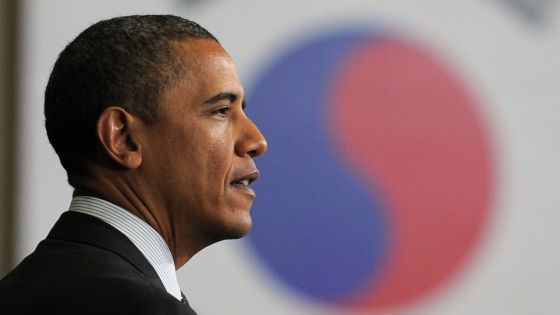OPD 3/26
Edited by Laurie Henneman

They are known as “the mutes”— the images of the first moments of interviews between leaders. They don’t happen often, but on occasion they result in being more significant than the public statements themselves. The camera microphones that captured the encounter in Seoul between the U.S. president and the acting Russian president, Dmitri Medvédev, collected some unusually sincere comments that will most likely give President Obama more than just a headache with his Republican rivals.
“On all these issues, but particularly missile defense, this can be solved. But it’s important for [Vladimir Putin] to give me space,” said Obama in the recording. “I understand your message about [the need of] space,” responded Medvédev, who in May will hand over power to Putin. “This is my last election,” added Obama, in a reference to the election in November, in which he will aspire to be a repeat resident of the White House.
The deputy national security advisor of the White House, Ben Rhodes, subsequently tried to minimize the impact of the indiscretion, given that 2012 is an election year in both Russia and the U.S. Although in Russia the elections have already happened, the theme of elections makes it very difficult to reach an agreement of this caliber. Both leaders have agreed to train their experts to try to understand better the positions of the other side, “providing space for continued discussions … .”
It’s a matter of a benevolent interpretation, since what Obama wants of the person he is speaking to is more air than space: he would rather that Putin not pressure him in the middle of election season. The antimissile shield, whose naval component will be deployed in the Spanish base of Rota, is one of the prime sources of the dispute between the former Cold War opponents. Washington insists that its objective is to neutralize the supposed threat of missiles from countries such as Iran and North Korea, but Moscow is suspicious that the U.S. is trying to undermine their nuclear deterrent and is demanding guarantees, such as a legally binding agreement that the NATO systems will not target Russian missiles, a plan which the U.S. denies. “[Missile defense] should be an area of co-operation, not tension,” said Obama this morning in a speech at Hankuk University in Seoul, before the start of the nuclear security summit in the South Korean capital, which brought together leaders of 53 countries and four multilateral organizations.
The proximity of the elections did not prevent Obama from pitching, in the same setting, a long-term offer. He proposed to Russia the negotiation of a nuclear arms control treaty that would go further than the new Strategic Arms Reduction Treaty, signed in April 2010. SART plans to reduce in 10 years one-third of the actual atomic arsenal, which will be limited to 1,500 nuclear warheads and 800 missile launchers for each of the two powers.
Yet despite this reduction, the U.S. will continue to have “more nuclear weapons that we need,” according to Obama. “I firmly believe that we can ensure the security of the United States and our allies, maintain a strong deterrent against any threat, and still pursue further reductions in our nuclear arsenal,” he announced yesterday. This new plan will consist of reducing the stored and non-deployed nuclear warheads, and tactical nuclear weapons excluded from earlier treaties. The suggestion that Obama made to his allies was not trivial, since some of these tactical weapons are positioned on European soil.
Obama will discuss the new disarmament treaty, according to sources at the White House, during his first encounter with Putin during the G-8 summit to be held at Camp David, May 18-19. Only a day later, NATO is scheduled to have its summit in Chicago, in which the order of the day appears to be precisely the launching of the controversial missile shield.
Both this point of contention, as well as the crisis with North Korea and Iran’s nuclear program, have left in the background the official objective of the summit: to prevent components or technologies that can be used to make atomic weapons from falling in the hands of terrorist groups. It is, without a doubt, the most dangerous scenario, yet they treat it as if it was the least likely or the least urgent.

Leave a Reply
You must be logged in to post a comment.